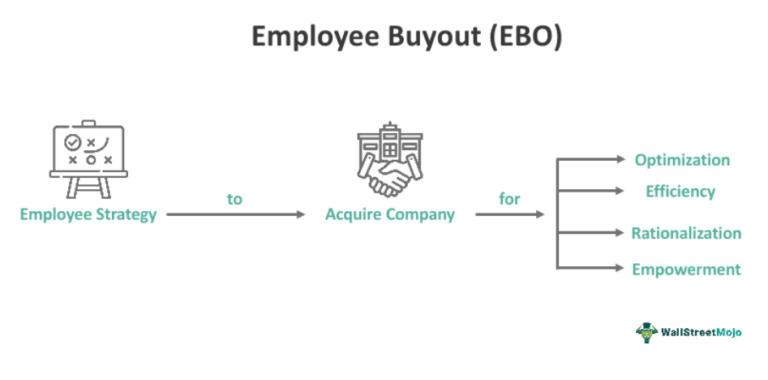
Audience
- Sentiment: Critical
- Political Group: Liberal
- Age Group: 35-54
- Gender: Female
Overview
- The Dayton sisters criticize Target for rolling back diversity and equity programs.
- They express concern that corporate profit is prioritized over ethical commitments.
- The article discusses the broader implications of corporate responsibility and the influence of institutional investors.
Target’s Retreat: A Deep Dive into the Criticism from the Dayton Sisters
Have you ever wondered how a company can change over time? Sometimes, the values a business stands for can shift, especially when it goes public and is influenced by various investors. This is precisely what has happened with Target, a store that many of us know and love. Founded on strong principles of community commitment and ethical business practices, Target is facing scrutiny from one of its founding families. Anne and Lucy Dayton, the daughters of Bruce Dayton—one of Target’s original founders—have voiced their disappointment about recent decisions made by the company. Let’s break down their concerns, the importance of their critique, and what it could mean for the future of Target and its customers.
Understanding the Background: Who are the Daytons?
Let’s start by understanding who the Dayton family is and their connection to Target. Back in the 1960s, the Dayton family founded what we now know as Target. Their vision was not just about retail; it was about serving the community and making a positive impact. Over the years, Target has shown commitment to various social causes, championing equality, and supporting diversity. This foundational belief earned Target a loyal customer base, making it a recognizable brand.
However, as time marched on and Target became a publicly traded corporation in 2000, things changed. Publicly traded means that anyone can buy shares of the company, and that introduces a new level of complexity. Now, the company must answer not just to its founders or its loyal customers, but also to institutional investors seeking profits, often with less regard for the company’s foundational values. The Dayton sisters have argued that this shift has led to Target distancing itself from the very principles that their father and the original founders held dear.
A Letter from the Sisters: What Are They Saying?
In a passionate letter to the editor, Anne and Lucy Dayton expressed their distress over Target’s decisions to roll back its Racial Equity Action and Change and Supplier Diversity programs. These programs aimed to increase diversity by partnering with minority-owned businesses and promoting racial equity within the company. The sisters condemned what they described as a retreat from the company’s ethical obligations, suggesting that Target had “cowered” in response to backlash over some of its product offerings, particularly those geared toward the LGBTQ+ community.
So, what’s the big deal about these programs, and why do the Daytons feel so strongly? For many, racial equity and diversity are not just buzzwords; they represent the fight against discrimination and the push for equal opportunities for everyone. Rolling back on these initiatives signals a step back in the fight for justice and equality, which many people—including the Daytons—view as unacceptable.
Furthermore, the sisters highlighted their belief that successful businesses should not shy away from standing up for what is right. Instead, they should embrace their role as community leaders. When companies like Target decide to opt-out of these commitments, it sends a message: that profit can potentially take precedence over ethics, which can be disheartening for customers who look to these companies for guidance and support in social issues.
The Broader Implications: Corporate Responsibility
The criticisms made by the Dayton sisters spark an important conversation about corporate responsibility. What does it mean for a corporation to be responsible? Companies wield tremendous power, influencing communities and economies in various ways. When companies prioritize social values, they encourage positive change and create a healthier society. Think about it—when was the last time you saw a company using its platform to advocate for a cause? It’s powerful. But when businesses retreat from this role, they risk losing the trust and loyalty of their customers.
In recent years, many brands have taken a stand on social justice issues. They recognize that their customers want to support companies that align with their values. Companies like Ben & Jerry’s, Nike, and Starbucks have made significant strides in using their platforms for good. Therefore, when a major brand like Target pulls back on its equity programs, it creates a ripple effect not just for Target but for other businesses too. Customers may begin to question which companies they can truly trust to commit to social justice causes.
The Influence of Institutional Investors
One of the reasons the Dayton sisters believe Target is stepping back from its principles is the influence of institutional investors. What does that mean? Institutional investors are large organizations that invest on behalf of their clients, such as mutual funds, pension funds, and insurance companies. These investors typically prioritize financial returns and can exert considerable influence on a company’s decisions.
Imagine if your favorite store started prioritizing profits over your values. It would be frustrating, right? That’s how the Daytons feel about Target. They believe the influence of these shareholders has caused Target to prioritize immediate financial gains rather than long-term commitments to its community and ethical responsibilities. It’s a predicament that many publicly traded companies face: balancing the desire to make a positive impact while still satisfying the demands of shareholders.
Philanthropy vs. Corporate Ethics
Interestingly, while the Dayton family has distanced itself from Target’s decision-making, they have maintained their commitment to philanthropy in Minnesota. Their efforts focus on various causes, contributing to health, education, and the arts. This raises an essential question: should charitable actions compensate for a company’s ethical lapses?
This offers a unique perspective on whether philanthropy can justify abandoning the core values of a corporation. Some might argue that giving back is essential and can help revise a corporation’s image following poor decisions. Others, like the Dayton sisters, may contend that true responsibility comes first from practicing ethical decision-making within the company and ensuring that all stakeholders are treated fairly—before any charitable donations are made.
What’s Next for Target?
As we think about Target, the big question remains: What steps are they going to take moving forward? Can they return to their roots and uphold the values set forth by the Dayton family? The choice lies in balancing the needs of their shareholders while also committing to their foundational principles of community and ethics.
For us, as customers, our voices matter just as much as anyone else’s. It’s essential for us to engage in conversations about the companies we support. When we voice our opinions, companies take notice. Essentially, it’s up to us to decide what we want from them. If we want to see companies like Target recommit to social justice and ethical practices, we should express that desire.
Final Thoughts: Join the Conversation
The discussions surrounding Target and the criticisms from the Dayton sisters are part of a more comprehensive conversation about corporate responsibility and the impactful role businesses play in society. It sparks broader questions about ethics, social justice, and community involvement, encouraging us to think critically about the companies we support.
Now, we want to hear from you! What do you think about the Dayton sisters’ criticism of Target? Do you believe corporations should prioritize ethics over profits? Share your thoughts in the comments below!





